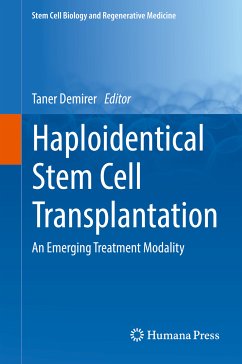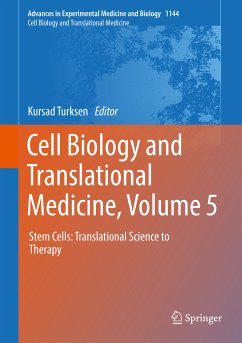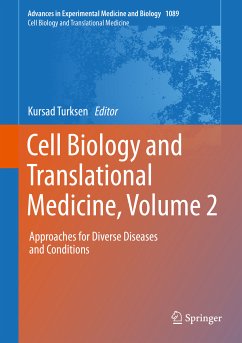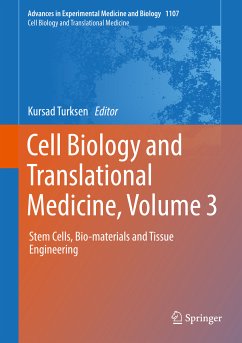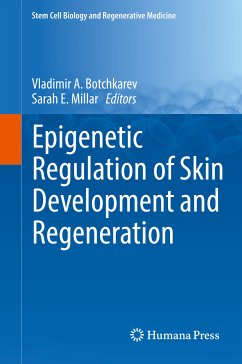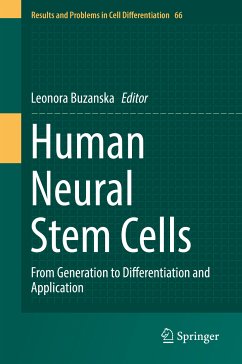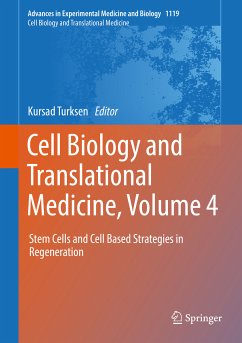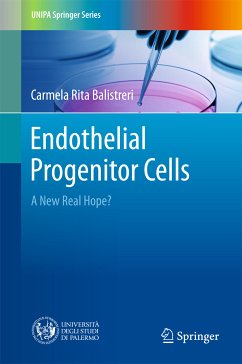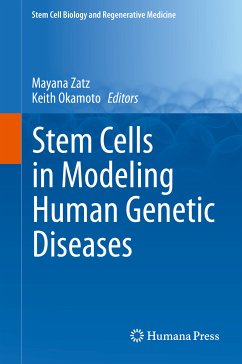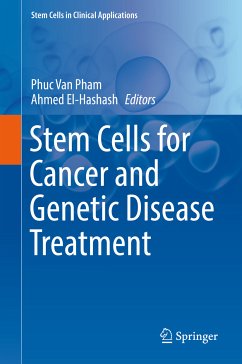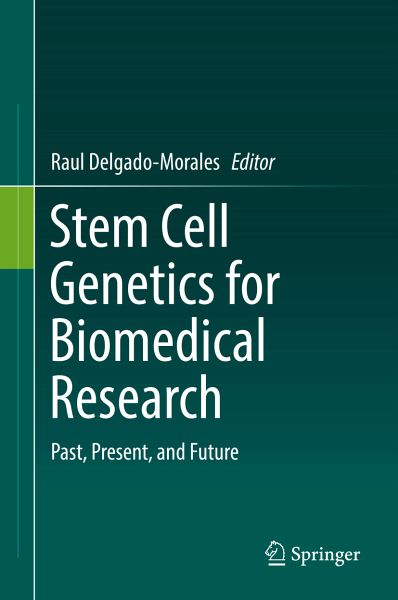
Stem Cell Genetics for Biomedical Research (eBook, PDF)
Past, Present, and Future
Redaktion: Delgado-Morales, Raul
Versandkostenfrei!
Sofort per Download lieferbar
104,95 €
inkl. MwSt.
Weitere Ausgaben:

PAYBACK Punkte
52 °P sammeln!
This volume presents an up-to-date compendium of major scientific breakthroughs on human diseases, drug screenings, personalized medicine and regenerative approaches by using stem cells to model or treat the disordersThis book covers what would be the desired strategy for the years to come, by methodically dissecting limitations in our current methodology and understanding of stem cells technologyThis book also summarizes state-of-the-art technology (genomics and epigenomics, crispr/cas9, epigenetic tools, bioinformatics approaches, etc) that will push further the applicability and validity of...
This volume presents an up-to-date compendium of major scientific breakthroughs on human diseases, drug screenings, personalized medicine and regenerative approaches by using stem cells to model or treat the disorders
This book covers what would be the desired strategy for the years to come, by methodically dissecting limitations in our current methodology and understanding of stem cells technology
This book also summarizes state-of-the-art technology (genomics and epigenomics, crispr/cas9, epigenetic tools, bioinformatics approaches, etc) that will push further the applicability and validity of the stem cell application in biomedical research
This book covers what would be the desired strategy for the years to come, by methodically dissecting limitations in our current methodology and understanding of stem cells technology
This book also summarizes state-of-the-art technology (genomics and epigenomics, crispr/cas9, epigenetic tools, bioinformatics approaches, etc) that will push further the applicability and validity of the stem cell application in biomedical research
Dieser Download kann aus rechtlichen Gründen nur mit Rechnungsadresse in A, B, BG, CY, CZ, D, DK, EW, E, FIN, F, GR, HR, H, IRL, I, LT, L, LR, M, NL, PL, P, R, S, SLO, SK ausgeliefert werden.



